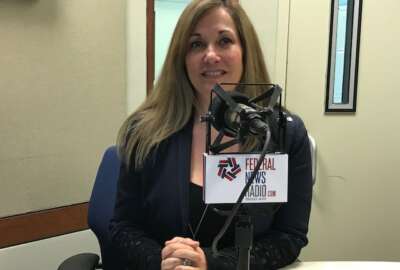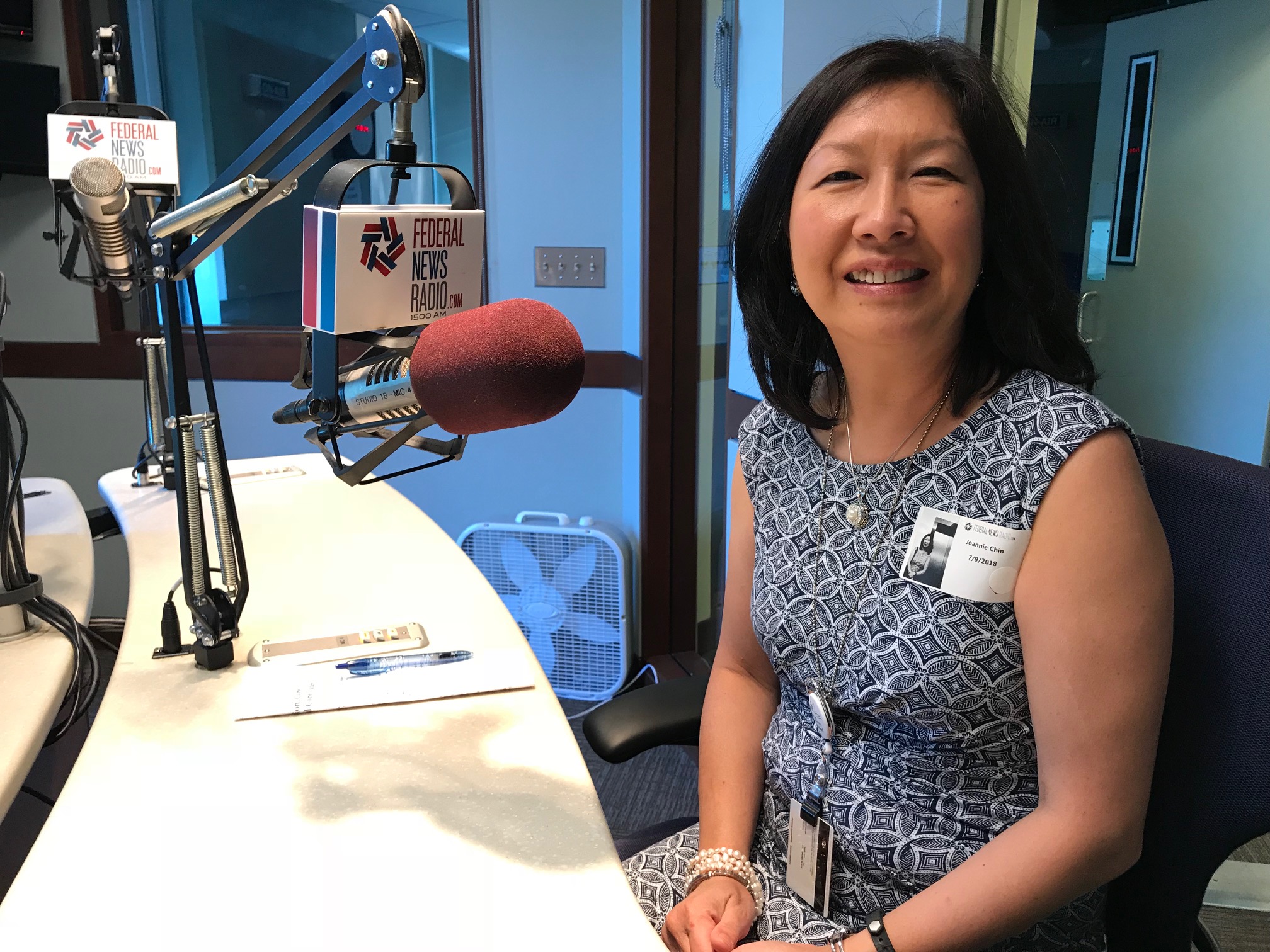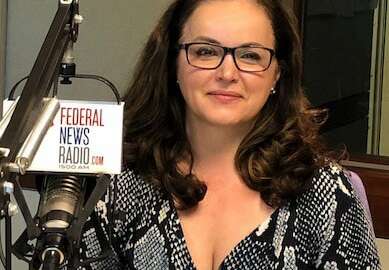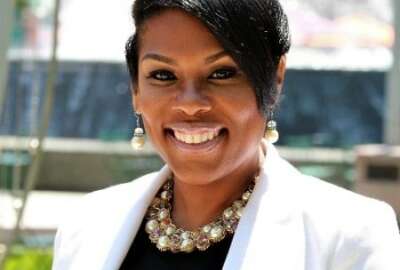
Dr. Chin: ‘Life is not linear’
On this week’s episode of Women of Washington, Gigi Schumm welcomes Dr. Joannie Chin, deputy director of the engineering lab at the National Institute of...
Best listening experience is on Chrome, Firefox or Safari. Subscribe to Women of Washington’s audio interviews on Apple Podcasts or PodcastOne.
Not all of our guest’s envisioned themselves working in the federal workforce — the pieces just fell into place.
On this week’s episode of Women of Washington, Gigi Schumm welcomes Dr. Joannie Chin, deputy director of the Engineering Lab at the National Institute of Standards and Technology. The lab, according to its website, “promotes U.S. innovation and industrial competitiveness by advancing measurement science, standards, and technology for engineered systems in ways that enhance economic security and improve quality of life.”
As deputy director, Chin leads a team that oversees most of the operational aspects within the lab. She said some of the things her staff covers is safety, financial management and HR. Working on projects around facilities and property, including procurement and acquisition grants, is her specialty.
Chin said growing up, she’s always felt like somewhat of an outsider. She emigrated to the United States with her mother from Taiwan when she was just two years old. Living in a Cleveland, Ohio suburb, there wasn’t a lot of diversity.
“I was one of maybe two Asians in a school of about 400,” Chin said.
Related Stories
“I think it was just [that] we did enough things that were different from everybody else that it just made you feel like we just don’t blend in like everyone else does,” Chin said. “And I think that … for kids, especially of a particular age … anything that makes you different is just really, really difficult.”
But that wasn’t necessarily her biggest challenge growing up. She said she felt the spotlight shining on her skills in math and science, what she called a “stereotypical Asian” quality. She said she owed a lot of that to her parents, who felt academics were more important than extracurricular activities. She did make the decision to try out for the cheerleading team, though her parents didn’t necessarily understand.
“I think that was a way to just push myself out of my comfort zone and do something loud and boisterous,” she said. “It was a good experience.”
She understood where her parents were coming from though, and she said she owes a lot to them, even if engineering wasn’t her first passion. Until senior year of high school, she even thought about pursuing a career in journalism.
“I think engineering [won] simply because I think back in that day, and maybe even today, whenever somebody does demonstrate proficiency in math and science, the knee-jerk reaction is ‘oh you should go into engineering’,” she said. “I wasn’t even really sure what engineering was … but it sounded kind of interesting and I knew that there are good opportunities and pretty good salaries involved.”

The decision to focus on polymer science came after thinking back to a small lesson in her high school chemistry class. Chin said she was fascinated with the way you could mix natural elements together to form more sturdy materials, such as plastic. She was hooked.
Before joining the federal workforce, Chin worked for Gould Electronics, focusing on copper foil. This was her first job out of college and she enjoyed learning about the adhesion of the foil within circuit boards used in electronics. But when her husband found a new job in Virginia, she had a hard time finding a position she felt passionate about in her field.
Eventually she joined NIST. There she truly found her place creating, testing and researching materials that helped to protect against weather and extreme circumstances. Chin said she has overall appreciated the flexibility the federal workforce has given her in her career, especially when she was raising her two boys. Though it wasn’t always her goal to work for NIST.
“I never thought about working in the federal government, that wasn’t even on my radar,” Chin said. “And this is where I ended up.”
When Chin was promoted to deputy director of the lab, she had to give up one of the things she enjoyed the most: research.
“I absolutely loved being in the laboratory and just being able to make materials and test them, look at the results of the difference measurements that we carry out on these materials and looking at the trends in the data and fitting models to them,” she said. “That’s just the best. I don’t know, that’s probably still my dream job if I could ever get back to that.”
Her parents are a big inspiration to her because they always told her to go after what she wants. Chin said her life mantra was to do her best, and then some. While on a team or working individually, she said she always found it rewarding working with people who were different from her.
She said her success is made up of the mentorship of everyone around her. Chin also takes time out of her busy schedule to mentor in leadership development programs, such as courses within the Federal Executive Institute at the Office of Personnel Management.
What advice would she give herself if she had to start all over again?
“I think that you just have to look to see where your gifts and your talents can be applied and when the opportunities come up, to not be afraid to make those jumps,” she said. “You know, life isn’t linear. Careers aren’t linear. Sometimes you have to go with the flow and go with your heart, as cliche as that might be.”
Copyright © 2025 Federal News Network. All rights reserved. This website is not intended for users located within the European Economic Area.
Steff Thomas is a digital editor at Federal News Network.






